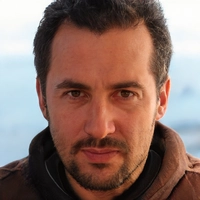World No Tobacco Day 2024: A Focus on Protecting Youth
On the occasion of World No Tobacco Day 2024, a remarkable online discussion was organized by the Renevlyn Development Initiative (RDI), Vital Voices for Africa (VVA), and Being Africa, bringing together 57 media practitioners from 20 different African countries. The primary aim of the event was to enhance journalists' capabilities in reporting on tobacco control, particularly concerning protecting children from the pervasive and insidious marketing tactics of the tobacco industry.
The theme for this year, 'Protecting Children from Tobacco Industry Interference,' underscores a pressing need for concerted efforts to thwart the tobacco industry's persistent strategies to recruit young smokers. During the session, several alarming statistics were shared, painting a vivid picture of the magnitude of this issue. Research revealed that one-third of youth experimentation with tobacco stems from targeted marketing by the tobacco industry, with an astonishing 78% of young individuals aged between 13 to 15 being exposed to various forms of tobacco advertising.
The event featured a variety of presentations and speeches aimed at fostering a deeper understanding of the unique ways in which different African contexts intersect with the broader global challenge of tobacco control. Prominent amongst these was Oluchi Joy Robert's detailed elaboration on Nigeria's specific context, Prixina Phiri's insights into Zambia's ongoing efforts, and Mohammed Maikudi’s pressing call for comprehensive data collection on youth tobacco use.
The Role of Media in Tobacco Control
Speakers at the event strongly emphasized the vital role that the media plays in this fight. Quality and accurate reporting can significantly contribute to protecting children from the allure of tobacco use and the subsequent addiction that can follow. Journalists were encouraged to delve deeper into their tobacco control stories, focusing on exposing the deceptive practices of the tobacco industry, which often aim to undermine public health measures and target vulnerable youth.
The sheer importance of this role cannot be overstated. With the majority of teenagers being heavily influenced by advertising, the media’s responsibility in providing balanced and informative coverage is paramount. There's a crucial need for journalists to prioritize stories that highlight the harmful consequences of tobacco use, particularly for young individuals. Furthermore, they were urged to push for rigorous enforcement of policies that restrict tobacco advertising, promotion, and sponsorship.

Experiences and Insights Shared
Oluchi Joy Robert offered a comprehensive overview of Nigeria's current efforts and challenges in combating youth tobacco use. She highlighted the need for improved legislation and stricter enforcement of existing laws. In Zambia, Prixina Phiri discussed ongoing initiatives and the nation’s relentless battle against tobacco industry's influence. Both speakers pointed out the critical role of compiling and sharing data to create effective strategies against youth smoking.
Mohammed Maikudi called for a collaborative effort in the collection and analysis of data on youth tobacco use. His presentation underscored the fact that without comprehensive and accurate data, crafting effective policies and interventions remains a herculean task. He also pointed out the nuances of different cultural and social contexts that should be taken into consideration when designing tobacco control measures.
Government Action Needed
The event converged on a unified call for governments across Africa to adopt and strictly enforce comprehensive tobacco control measures. It was felt that many existing policies lack the necessary teeth and enforcement mechanisms, thereby allowing the tobacco industry to continue its aggressive marketing practices largely unchecked. Key recommendations included implementing stringent restrictions on tobacco advertising, higher taxes on tobacco products, plain packaging, and extensive public awareness campaigns about the risks of smoking.
The call to action wasn't limited to governments alone. It extended to civil society organizations, urging them to hold their governments accountable and actively participate in the advocacy for stricter tobacco control laws. The synergy between the media, governmental bodies, and civil society can create a formidable front against the tobacco industry's efforts to perpetuate smoking among the youth.

A Path Forward
The discussions concluded with an optimistic outlook for the future. It was acknowledged that while significant challenges persist, the momentum for change has never been stronger. The continuous and committed efforts of journalists to bring to the forefront the various dimensions of tobacco control can significantly contribute to altering public perceptions and driving policy changes.
World No Tobacco Day 2024 thus served as a crucial reminder of the shared responsibility across various sectors to protect the younger generation from the health hazards of tobacco. The enhanced focus on quality reporting by media practitioners from across Africa is expected to play a pivotal role in this global fight against the tobacco epidemic.
Conclusion
In summary, World No Tobacco Day 2024 highlighted the urgent need for the media to step up its reporting on tobacco control, focusing particularly on the insidious strategies employed by the tobacco industry to attract young smokers. The event brought to light the significant role that quality journalism can play in safeguarding children and holding the tobacco industry accountable. As governments and civil society gear towards more stringent tobacco control measures, the collective effort spearheaded by dedicated journalists promises a hopeful future in the battle against tobacco-induced harm.

